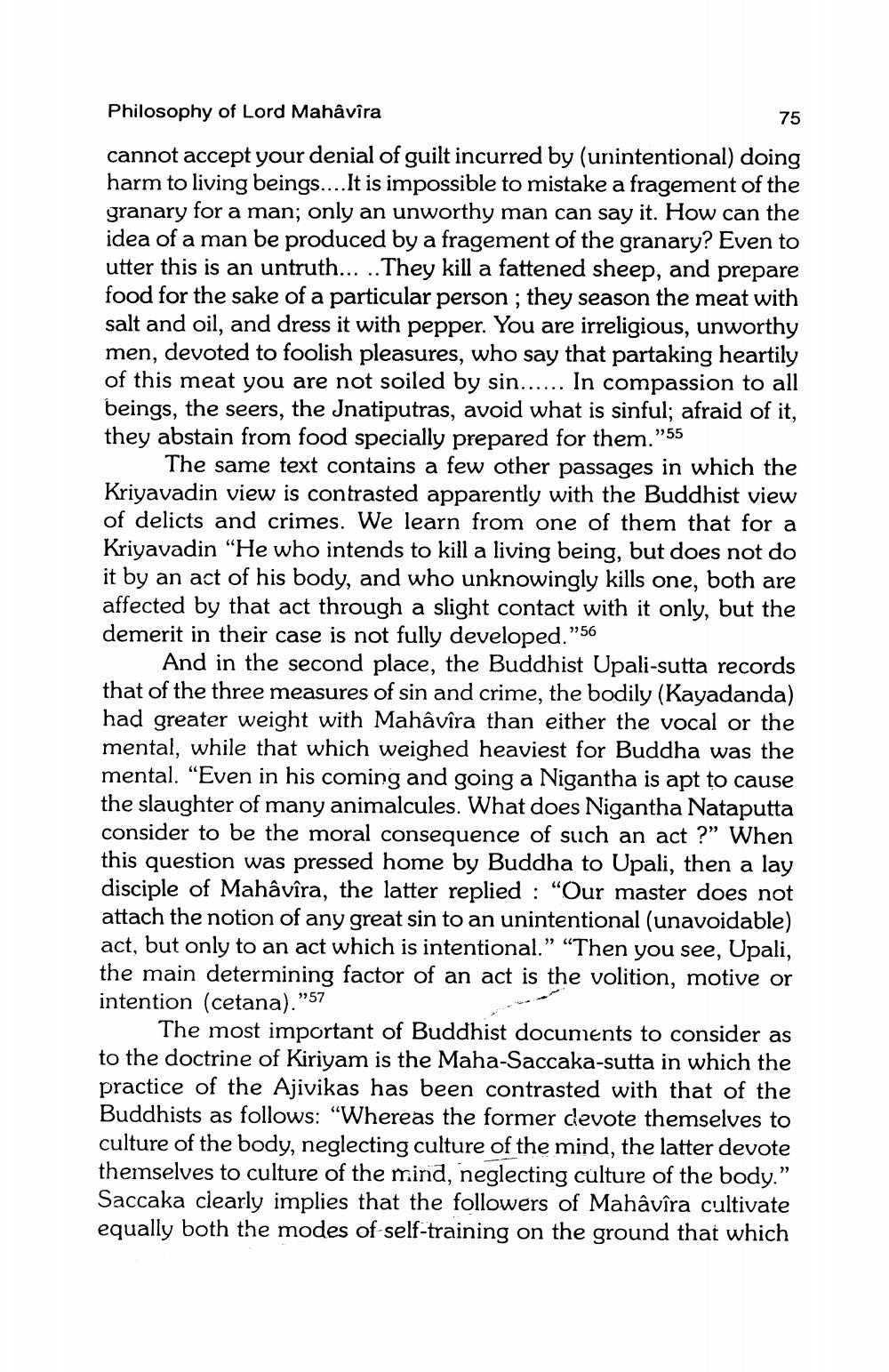________________
Philosophy of Lord Mahâvira
75 cannot accept your denial of guilt incurred by (unintentional) doing harm to living beings.... It is impossible to mistake a fragement of the granary for a man; only an unworthy man can say it. How can the idea of a man be produced by a fragement of the granary? Even to utter this is an untruth... ..They kill a fattened sheep, and prepare food for the sake of a particular person; they season the meat with salt and oil, and dress it with pepper. You are irreligious, unworthy men, devoted to foolish pleasures, who say that partaking heartily of this meat you are not soiled by sin...... In compassion to all beings, the seers, the Jnatiputras, avoid what is sinful; afraid of it, they abstain from food specially prepared for them.”55
The same text contains a few other passages in which the Kriyavadin view is contrasted apparently with the Buddhist view of delicts and crimes. We learn from one of them that for a Kriyavadin “He who intends to kill a living being, but does not do it by an act of his body, and who unknowingly kills one, both are affected by that act through a slight contact with it only, but the demerit in their case is not fully developed. ”56
And in the second place, the Buddhist Upali-sutta records that of the three measures of sin and crime, the bodily (Kayadanda) had greater weight with Mahâvîra than either the vocal or the mental, while that which weighed heaviest for Buddha was the mental. “Even in his coming and going a Nigantha is apt to cause the slaughter of many animalcules. What does Nigantha Nataputta consider to be the moral consequence of such an act ?” When this question was pressed home by Buddha to Upali, then a lay disciple of Mahâvîra, the latter replied : "Our master does not attach the notion of any great sin to an unintentional (unavoidable) act, but only to an act which is intentional." "Then you see, Upali, the main determining factor of an act is the volition, motive or intention (cetana)."57
The most important of Buddhist documents to consider as to the doctrine of Kiriyam is the Maha-Saccaka-sutta in which the practice of the Ajivikas has been contrasted with that of the Buddhists as follows: “Whereas the former devote themselves to culture of the body, neglecting culture of the mind, the latter devote themselves to culture of the mind, neglecting culture of the body.” Saccaka clearly implies that the followers of Mahâvîra cultivate equally both the modes of self-training on the ground that which




